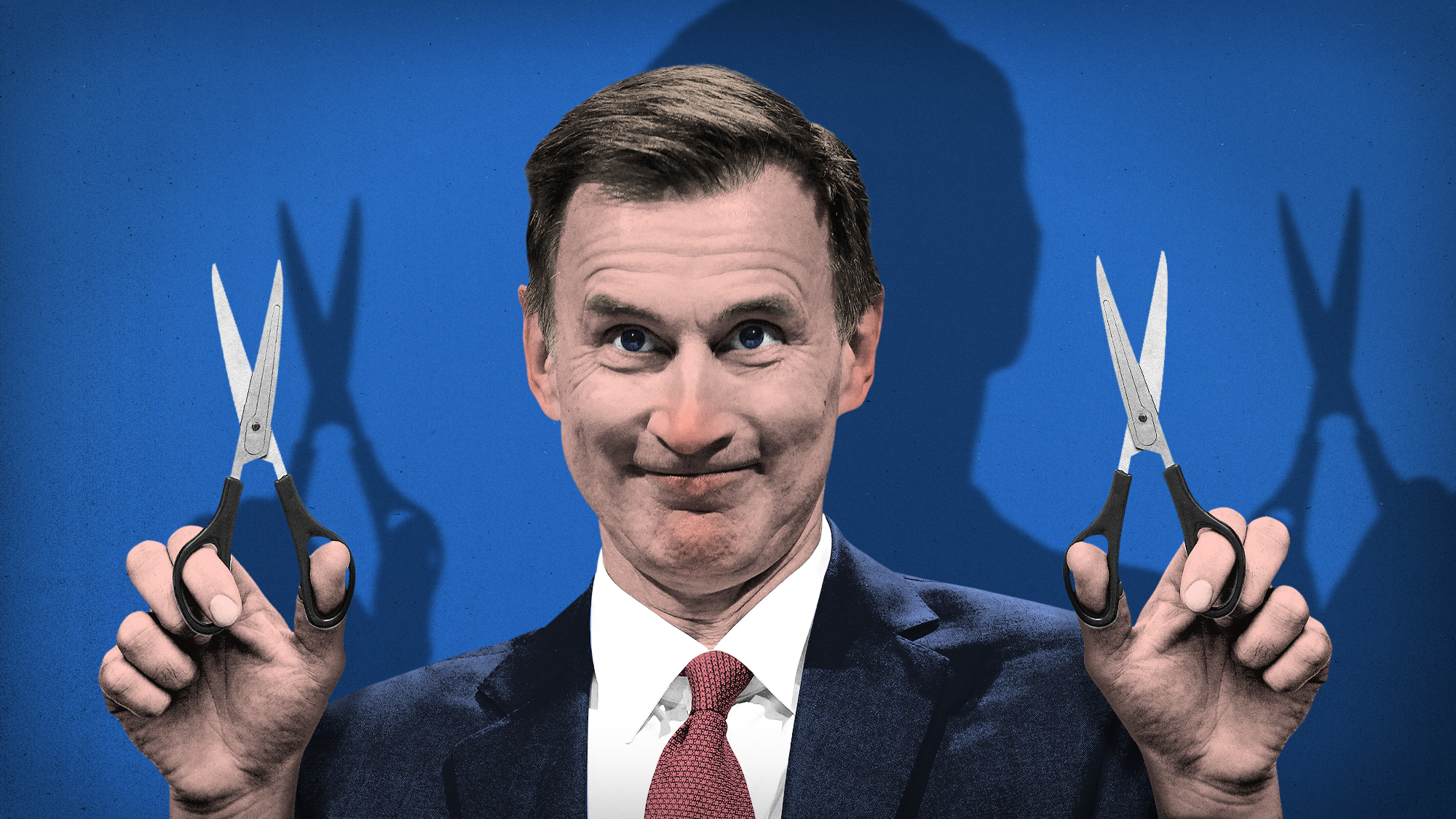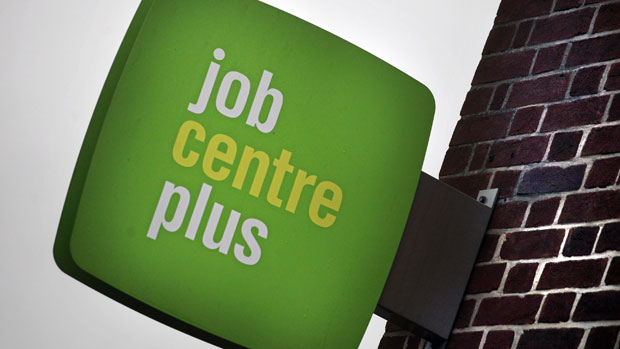Argos named and shamed among minimum wage offenders
Retailer now owned by Sainsbury's admits it underpaid staff by £2.4m in February

A free daily email with the biggest news stories of the day – and the best features from TheWeek.com
You are now subscribed
Your newsletter sign-up was successful
Argos has been named and shamed as the biggest offender in the latest list of firms who have failed to pay their staff the legal minimum wage.
The catalogue retailer, now owned by the supermarket group Sainsbury's, was fined £800,000 by HMRC for underpaying 12,000 staff a total of £1.5m over a period of four years.
In fact, the underpayment was much larger. Sainsbury's admitted the breaches in February when it said the issue affected 37,000 current and former employees who would be repaid a total of £2.4m.HMRC's figures only include the amount underpaid to current employees.
The Week
Escape your echo chamber. Get the facts behind the news, plus analysis from multiple perspectives.

Sign up for The Week's Free Newsletters
From our morning news briefing to a weekly Good News Newsletter, get the best of The Week delivered directly to your inbox.
From our morning news briefing to a weekly Good News Newsletter, get the best of The Week delivered directly to your inbox.
"Employees had been required to attend briefings before their shifts started, but without being paid. They also had to undergo security searches after their shifts ended," says the BBC.
John Rogers, the chief executive of Argos, said the issue came to light during a routine HMRC visit and that "processes have been updated to ensure this cannot happen again".
In total, a record £1.9m minimum wage breaches was reported by the tax watchdog, which has published a list of firms found to have broken pay laws every six months since 2013.
This time around it listed a total of 233 firms, including Argos, the healthcare recruitment agency Pearson Anderson, 60 hairdressing and beauty treatment businesses, 50 firms in the hospitality sector and 20 retailers, says The Times.
A free daily email with the biggest news stories of the day – and the best features from TheWeek.com
Frances O'Grady, the TUC's general secretary, said: "This should be a wake-up call for employers. If you cheat staff out of the minimum wage, your reputation will be dragged through the mud."
Minimum wage laws currently guarantee anyone over the age of 25 an hourly rate of £7.50 per hour, with floor rates of £7.05 for those aged 21-25, £5.60 for 18-20s, £4,05 for 16-18s and £3.50 for apprentices.
Small businesses call for delay to living wage target
14 August
Government targets for the national living wage to hit 60 per cent of median earnings by 2020 should be delayed, say small businesses.
A survey by the Federation of Small Businesses found companies were suffering from the above-inflation rises in the minimum wage, with almost two-thirds saying they had taken reduced profits to meet this year's increase, damaging investment, says Sky News.
However, fears the increase would hit jobs appear to be broadly unfounded, with around a fifth of survey respondents saying they have reduced hiring and only one in 20 cutting staff, says The Herald.
There is also very little evidence of small businesses seeking to hire people under the age of 25 to avoid higher wages.
Nevertheless, the federation is concerned about the pace of change and wants the living wage contained to £7.85 per hour next year and the eventual 60 per cent target postponed "if economic conditions do not justify it".
National chairman Mike Cherry said: "Cost pressures on small businesses are building and with most recent economic indicators underperforming, we are now facing the reality that the [national living wage] target may need to be delayed beyond 2020."
The national living wage was introduced in 2015 and guarantees a higher minimum wage for those over the age of 25.
It was initially set at £7.20 per hour and rose to £7.50 this past April, compared to the £7.05-per-hour minimum wage for over-21s and the £4.05 per hour for those aged 16-18.
Government plans are for the living wage to rise to 60 per cent of median earnings by April 2020, which was originally expected to equate to more than £9 per hour, but is now believed to be worth around £8.75.
John Lewis sets aside £36m for minimum wage back-pay
09 May
John Lewis is facing a bill of £36m after becoming the latest big-name employer to breach minimum wage legislation.
Although its hourly rates are above the minimum wage, at the mutual fell short on regulations in specific periods due to its policy of averaging pay, which "aims to smooth out monthly pay over the year", says The Guardian.
Consequently, while "employees received the correct pay over the year... in months where those on hourly rates worked more than average pay fell below the national minimum rate".
Even though in other months the effective pay rate would have been higher than the contracted rate and well above the legal minimum, the legislation apply to any pay period in isolation.
The problem affects all hourly-paid staff employed over the past six years.
In its annual report today, the retail group, which owns John Lewis department store and Waitrose supermarkets, reduced its profit for the past year by £36m to £541m to cover the cost of back-pay and related expenses.
Chairman Charlie Mayfield said: "HMRC are aware and we intend to work with them in order to resolve some of the key points regarding the way the regulations apply to our pay arrangements and practices.
"We expect to do this as quickly as possible. However, it is likely these discussions will take some time to be completed."
John Lewis said it "now planned to simplify its pay processes to ensure they were easier to administer and at less risk of non-compliance with pay legislation".
The Guardian reports the group had to pay £40m to staff four years ago, after miscalculating holiday pay.
This is the second reported minimum wage issue to hit a department store this year, after the government named and shamed Debenhams for underpaying almost 12,000 workers by an average of £12 each.
The store similar said the mistake was not intentional and had been the result of a "technical error".
Jeremy Corbyn pledges a £10 minimum wage in 2020
17 February
Jeremy Corbyn has promised a Labour government will introduce a £10 minimum wage as he launched his latest bid to revive his party's fortunes ahead of May's local elections.
Hot on the heels of a popular announcement to tax private school fees to pay for free school dinners for state primary pupils, the opposition leader today confirmed details of a policy first announced last year.
The £10-per-hour rate would apply to anyone currently entitled to the legal minimum wage and not only the over-25s who currently benefit from the Conservative government's "national living wage".
Labour calculates this would equate to a pay rise of £2,500 for most workers and £4,500 for those over the age of 21 if it gains power in 2020, when the next general election is planned.
Corbyn said: "Labour's real living wage will immediately boost the incomes and opportunities of more than 20 per cent of the workforce, especially in sectors such as retail, care and hospitality.
"We know that where work pays, living standards rise and reliance on benefits falls. This is the right thing to do and a Labour government will be committed to rebalancing our economy so that no one and no community is left behind."
At present, the minimum wage, introduced by Tony Blair's New Labour in 1997, is set at different rates depending on age, with a maximum of £7.05 for those over the age of 21.
Workers over the age of 25 are entitled to the national living wage, currently worth £7.50 per hour and set to rise to 60 per cent of median earnings by 2020.
At the time of the launch last year, the government said that would equate to a rate of £9.35. However, as wage growth has slowed since the Brexit vote, it could now be closer to £9. Labour argues it will actually equate to just £8.75 an hour and it is that figure on which it has based its calculations, says The Guardian.
Employers groups claim the living wage puts a strain on business and will cost jobs. It has also been said to have had a profound affect on the cost of providing social care and exacerbated the funding pressure on councils.
As Labour's policy is a fixed rate rather than a comparative measure with average earnings, it will be viewed even more critically on these terms.
Sainsbury's admits Argos underpaid 37,000 workers by £2.4m
17 February
Supermarket will repay current and former employees after failing to ensure they received national living wage
Argos has agreed to pay back £2.4m to 37,000 current and former employees who were underpaid the national living wage.
The retailer will also pay a penalty to HMRC of £800,000. The sum has been reduced from £1.5bn because Argos has agreed to pay the fine within 14 days, says The Guardian.
The supermarket group Sainsbury's, which acquired Argos in a £1.4bn deal last year, admitted to the minimum wage breaches today. But the supermarket stressed that the underpayments date back to 2014 before it took over the business.
Sainsbury's says that the pay discrepancy, which equates to about £64 per affected employee, occurred because of security searches and staff briefings that took place outside working hours.
"John Rogers, the chief executive of Argos, said… new processes had now been introduced, following an internal enquiry," says the BBC.
Of the staff members affected, around 12,000 still work at the retailer.
The admission comes hot on the heels of the government publishing its latest "name and shame" list of companies that have breached minimum wage laws. The most prolific offender is Debenhams whose staff were underpaid by £135,000.
This means staff were underpaid by just £11.37 each. It was, says Debenhams, the result of a "technical error" in the store's payroll systems.
Argos will be named and shamed on the government list later this year.
Its issues are reminiscent of Sports Direct, which last year was forced to agree to repay £1m to its workers in order to compensate for minimum wage underpayments related to after-hours searches.
Late last year, Sports Direct rival JD Sports was also accused of underpaying staff as a result of lengthy searches conducted outside working hours.
Rogers said: "Sainsbury's prides itself on being a trusted brand where people love to work and I was therefore very disappointed to hear this, and launched an immediate investigation."
He added that the company was planning to up the minimum pay rate for the lowest-paid Argos staff who are aged over-25 from £7.20 to £7.66, as well as to offer them discounts when shopping at Sainsbury's.
In April, the national living wage (the legal minimum wage for over-25s) will rise from £7.20 to £7.50.
Debenhams tops minimum wage 'name and shame' list
16 February
Department store chain Debenhams has topped the government's latest "name and shame" list of companies that failed to pay workers the legal minimum wage.
A total of 360 employers were found to have underpaid staff either the £7.20-per-hour national living wage, which applies to workers over the age of 25, or the £6.95-per-hour minimum wage for over-SC.
They were forced to repay £995,233 to the 15,500 workers affected, plus penalties from HMRC of more than £800,000.
Debenhams was found responsible for underpaying eight in ten of those workers, 11,858 of the total.
A spokesman for the store said the issue was the result of a "technical error" in its payroll calculations.
He added: "As a responsible employer, Debenhams is committed to the national minimum wage, and as soon as the error was identified by a routine HMRC audit last year we reimbursed all those affected.
"We have apologised to all our colleagues affected and have taken steps to ensure it cannot happen again."
The Guardian describes Debenhams' failing as "embarrassing", with the cumulative underpayment amounting to £11.37 per worker.
Hospitality businesses such as restaurants, bars and hotels, appear most often in the list, with 84 businesses underpaying 563 staff in total.
Some of these breaches were substantial: Lorenzo Berni, of upmarket Knightsbridge restaurant Osteria San Lorenzo, underpaid 29 employees by more than £53,000, or £1,844 each.
"Only last year Berni's Wimbledon eatery, which is a favourite haunt of tennis stars including Boris Becker, was forced to pay back almost £100,000 to 30 other employees," the Guardian adds.
The second-largest underpayment was by Pembrokeshire Care, a home care company in rural west Wales, which underpaid 154 workers by £55,000. It blamed an error in calculating journey times.
Director Kate Ashley said: "We thought we were paying the right amount and the HMRC found that we weren't.
"We have put in place a new system of calculation that the HMRC has said it is happy with. The social care sector is under tremendous pressure and we are on tight margins, which are getting tighter all the time."
Other reasons for failing to pay the right amount included using tips to top up pay, docking workers' wages to pay for their Christmas party or making staff pay for their own uniforms out of their salary.
National living wage has not hit jobs so far
20 December
Concern that the new national minimum wage could cost thousands of jobs appears to be misplaced so far, according to Resolution Foundation think-tank.
A survey of 800 employers found 47 per cent said their wage bill had increased since April, with slightly more than a fifth saying it had increased "a lot".
However, only 27 per cent of affected firms said they had made "staffing changes" in response and a mere two per cent of these had made any workers redundant – a total of two firms out of the 800 surveyed.
When the policy was announced by former chancellor George Osborne last year, the Office for Budget Responsibility said it could cost 60,000 jobs.
Resolution Foundation did find that more than half of the firms that made some changes, so around seven per cent overall, either hired fewer staff or offered fewer hours.
The most common coping strategies included raising prices and increasing productivity by boosting training, each undertaken by around six in ten affected companies, 30 per cent of the total.
"Pay rises don't come for free and many predicted the national living wage would cause other negative effects, such as job losses," Conor D’Arcy, a policy analyst at the think-tank, told The Times.
"Thankfully, that hasn’t come to pass as employers have responded by raising productivity, taking a profit hit and raising prices."
However, there are more pressures to come. Having been set at an initial rate of £7.20 per hour for over-25s in April, the national living wage will rise to £7.50 next year and to 60 per cent of median earnings by 2020, when it could be around £9.
Voluntary living wage rises to £8.45 per hour
1 November
The UK voluntary living wage has gone up by 20p per hour today to £8.45, a rise of 2.4 per cent. In London, where the cost of living is substantially higher, it has been increased by 3.7 per cent, rising 35p to £9.75.
These rates are distinct from the national living wage, the legal minimum introduced in April for over-25s, which was set at £7.20 per hour this year.
Under-25s, meanwhile, are covered by the national minimum wage, which was increased to £6.95 per hour for those over the age of 21 in October.
The voluntary rates, which are designed to reflect the lowest wage needed for a decent standard of living, are calculated by Resolution Foundation think-tank and overseen by the Living Wage Foundation.
After the increase, full-time workers will earn £45 a week nationally, and £95 a week more in London, more than someone on the government minimum wage, says the Financial Times.
Around 3,000 employers, including Ikea and EDF, have pledged to pay the voluntary wage, says the BBC. Everton Football Club, Curzon Cinemas and the British Library, among others, also signed up this week.
At the new rate, the voluntary living wage is already closing in on the target rate for the national living wage, which is being increased to 60 per cent of median earnings by 2020, when it could be about £9 per hour.
According to FT analysis conducted when the policy came into effect in April, that would give the UK one of the highest minimum rates in the world.
In terms of local purchasing power, it would be the same as the minimum rate in Australia and second only to Denmark, although with lower rates for younger workers.
The number of firms joining the scheme has doubled since last year, Gavin Kelly, the chairman of the Living Wage Commission, told the FT.
"For a growing number of employers, it is part of a wider shift in how they view the workforce and runs alongside a move to greater hours-security and increased training," he said.
-
 The environmental cost of GLP-1s
The environmental cost of GLP-1sThe explainer Producing the drugs is a dirty process
-
 Greenland’s capital becomes ground zero for the country’s diplomatic straits
Greenland’s capital becomes ground zero for the country’s diplomatic straitsIN THE SPOTLIGHT A flurry of new consular activity in Nuuk shows how important Greenland has become to Europeans’ anxiety about American imperialism
-
 ‘This is something that happens all too often’
‘This is something that happens all too often’Instant Opinion Opinion, comment and editorials of the day
-
 Why au pairs might become a thing of the past
Why au pairs might become a thing of the pastUnder The Radar Brexit and wage ruling are threatening the 'mutually beneficial arrangement'
-
 Five key takeaways from Jeremy Hunt's Autumn Statement
Five key takeaways from Jeremy Hunt's Autumn StatementThe Explainer Benefits rise with higher inflation figure, pension triple lock maintained and National Insurance cut
-
 Real living wage: are you about to get a pay rise?
Real living wage: are you about to get a pay rise?In Depth More than 4,700 businesses have agreed to increase their staff’s hourly rate
-
 Amazon accused of cutting benefits to fund pay rises
Amazon accused of cutting benefits to fund pay risesSpeed Read Trillion-dollar company eliminates bonuses and stock awards for hourly workers
-
 UK unemployment down – but so is the average wage
UK unemployment down – but so is the average wageSpeed Read Economists warn of 'paymageddon' as average wages see 'shock' fall for the first time in five years
-
 Living wage rises to £7.85, but 5 million workers still underpaid
Living wage rises to £7.85, but 5 million workers still underpaidIn Depth Support for the living wage increases, but campaigners say more must be done for working families